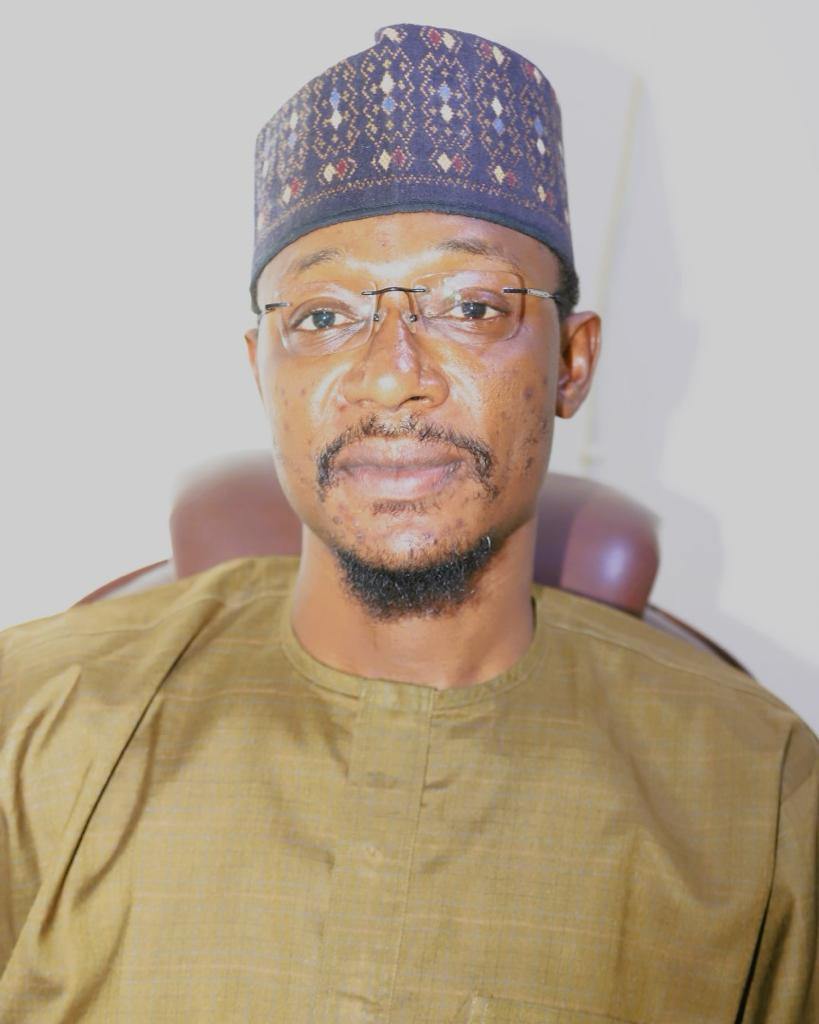Abdulrasheed Hamisu Kofarmata is the project coordinator, Kano State Agropastoral Development Project (KSADP), a project in Sasakawa that seeks to boost agricultural activities in the state along several value-chains. In this interview, he talks about the project’s ongoing interventions in the state.
Can you tell us what KSADP is all about?
The Kano State Agro-pastoral Development Project is a 5-year program which focuses on enhancing crop and livestock productivity in the state. It is funded by the Islamic Development Bank (IsDB), the Lives and Livelihood Funds, (LLF) and the government of Kano State. However, it will interest you to know that the executing agency of the program is the Kano State Agriculture and the Rural Development Authority (KNARDA), under the coordination of the Project Management Unit led by Ibrahim Garba Muhammad – State Project Coordinator.
The overall objective of the project is to contribute to reducing poverty and to strengthen food and nutrition security in the state by developing agro pastoral production systems through sustainable production, processing and retailing.
It is equally important to note that SAA is a technical partner under the KSADP; providing technical support to the government’s extension efforts of enhancing agricultural productivity and competitiveness.
- Kano APC stakeholders resolve to move on after Supreme Court judgment
- I receive N577,000 monthly pension from Lagos govt – Fashola
How does the project intend to achieve what you have highlighted?
The plan is to achieve the set goals through increased access to inputs, value addition, extension services delivery, agri-business development, and capacity strengthening of farmers in production, postharvest operation and market access across selected value-chain. Moreover, SAA works with IITA, ICRISAT, Value seeds, Premier Seeds, Sim seeds, Happy seeds, Joy seeds, Tecniseeds and Ahalson, among others, to strengthen the seed system and implement the project.
Looking back to when you started, tell us some of the achievements of this project so far?
Let me begin with the progress so far recorded last year 2023 across the 3 pillars, beginning with regenerative agriculture. The project had conducted community entry and sensitization across the 44 local government areas of Kano State. We have also conducted pre-season training for over 854 extension agents, Commodity Association Traders (CATs) who guide farmers on cereals and vegetable production through a step-down training to about 366,000 farmers within the 44 local governments. The project had also distributed 100 Simple planters and 200 units of fertilizer applicators as well as distributed 400 units of treadle pumps and 100 units of solar powered pumps.
It will interest you to know that the farmers were practically trained and supported through established learning platforms during the dry season, that include 44 Rice and Maize Community Based Seed Multiplication (CBSM) learning clusters of 1 hectare each, 352 dry season Rice and Maize demo plots of 0.25-hectare, 150 dry season tomato, onion and cabbage demo plots clusters. While for the wet season, the project has 220 Maize/Soybeans Strip cropping demo plots of 0.5 hectare each, 220 Rice demo plots of 0.5 hectare each, 150 Sorghum/Soybeans strip cropping demo plots of 0.5 hectare each as well as 346 hectares of seed multiplication, among other interventions introduced by the project.
However, under market-oriented agriculture, the project has trained 585 farmers, women inclusive, on collective market access, group dynamics and community savings for investment in agribusiness. Similarly, 11,228 farmers were reached through stepdown training as well as the training and empowering of 440 youths on private spray service and enterprise management, training and empowerment of 100 agro-input stockiest with branded kiosks and inputs among other interventions the project has done and in all these; the project is very sensitive to gender inclusion.
However, under nutrition Sensitive agriculture, the project had trained and empowered 25 Indigenous fabricators, built the capacity as well as empowered 75 women on improved and hygienic tomato processing among other skills acquisition intervention which usually comes with empowerment, established 3 medium scale improved rice parboiling centres, trained and empowered additional 40 women groups on parboiling technology, distributed threshers, reapers, power tillers, returnable plastic crates, among others.
What is the project doing on issues related to post-harvest losses?
The project didn’t leave that aspect because we are fully aware that post-harvest losses has been a problem the farmers have been facing for a long time and as such the project had established additional 20 Aerated Onion storage technology (AOST), 3 rice parboiling enterprises, 3 vegetables tent dryer, 28 Agro processing centres. Distributed returnable plastic crates.
This is an attempt to reduce farmer’s post-harvest losses as well as improve agricultural processes along the value chain, thereby creating more jobs and a reduction in the poverty level in the society.
However, with what the project has been doing, we are optimistic that farmers stand a better chance under the project as it is trailing towards robust agricultural production under practices module and by extension, this will ensure zero-reject in what Nigerian farmers are producing for exportation.
How sustainable are these successes?
We ensure community participation in the project implementation. This is a multi-faced project that spans along the value chain – a lot of crops and cereals. Also, it didn’t stop at improving agricultural activities alone, it spans across the value chain by transforming the mindset of the farmers from subsistence farming to commercial farming along crops value chain.




